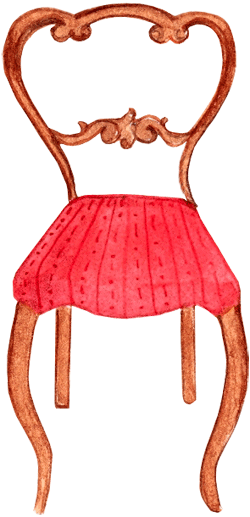Possession Obsession

Only the Names Have Been Changed
Irmgaard and Hans left Germany for a new life in a new country. They joined the millions of immigrants who have contributed their efforts and culture to their new country. They learned a new language. They raised their family. They paid their taxes. They voted according to their consciences. They were responsible, productive members of society. The new life was good to them and they became financially secure.
They also brought memories of home with them. To some degree, they grieved. They missed their previous home, their way of life, language, customs, foods, their family members. Over the years some of the older family members died. Loss after loss after loss. Despite the fact that Irmgaard and her family were happy in their new country, and were fortunate to be able to return to Germany on many occasions, there was an emptiness in their hearts.
Advancing years brought health troubles. One day, at age 80, Irmgaard became a widow. She faced many mountains. She had no idea of the household finances. It wasn't her duty, after all. Her role had long been defined. She was the homemaker. Her husband had taken care of the business, the car, and the garden. She took care of the home. It worked perfectly for them.
We see her now in her new position. With the help of her grown children, she has learned how to pay the bills. A taxi takes her to her appointments and she's learning to cook for one. She can organize the visits from the gardener. A neighbour takes her to her worship services.
Irmgaard's health is declining noticeably. She has had a few falls and uses a cane. Her short-term memory isn't what it was. She repeats stories word for word to the same person on a weekly basis. She tries to be cheerful, but depression and loneliness are constant companions. "Many days I have no one to talk to."
Irmgaard knows she should sell her home and move into a seniors' facility where meals are prepared, where there are outings and card games ... and most importantly, where she would interact with people on a daily basis. She would have neighbours to whom she could say, "Good morning." We know that a move now is in her best interest. She would make new friendships in her new community.
What's holding Irmgaard back? What's keeping her from making the move? It isn't her neighbours. Most of them work and are busy with their families, although they drop in occasionally to say hello. It isn't her children. They have encouraged her to move now, while she's fit enough to adapt to the change, to make new friends, to enjoy a new life.
What is it that keeps Irmgaard in her big, lonely home?
Her possessions.
Yes, her stuff. Her constant cry is, "What will become of my things? My children don't want them. They have their own things, their own tastes. They don't want these things. This was my grandmother's vase. This was the set of chinaware that belonged to my mother. We brought it with us from Germany. These pieces of lace ... my mother-in-law made them for me." And on it goes, over and over and over. "What will become of my things?"
We're back to grieving. She's grieving the loss of the life she had. She doesn't recognize it, but Irmgaard is obsessing over objects. They remind her of her happy past. She's clutching onto it for dear life. Irmgaard is having a tough time accepting her loss. Her irrational behaviour is her defense against anxiety. Her life is irreversibly changed and she doesn't like it. Sadly, lying awake at night obsessing over a special teacup has turned this out-going, fun-loving lady into a ball of stress and tension. It's difficult to watch her anguish, to imagine her pain.
Barring a health crisis, the notion of a move must come from Irmgaard, only Irmgaard. No one can make her decision for her. She has to decide whether her belongings provide enough company for her over a period of time. When she finally realises that furniture and belongings can't carry on a conversation, she'll know the time has come.
